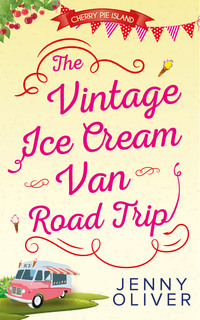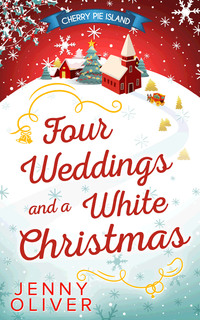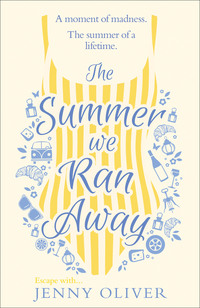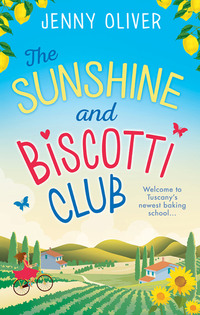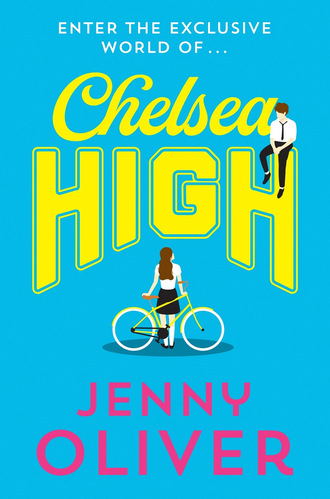
Chelsea High
Through my bedroom wall on the boat, I heard my mum sit up and take a sip of water then put the glass back down. ‘I just hate being in debt to them, Bill. I hate it. I wish I’d never let you say yes to those films. I think about it, lying here, all the time. Why didn’t I read the contract?’
‘And what would you have done?’ my dad said, his voice a little lighter, laced with humour suddenly. ‘What would you have spotted?’
‘Nothing,’ she said after a moment, admitting defeat.
I listened, chewing my lip. It was unfair to blame my grandparents. Without them we would have nothing right now. It was just my mum and dad were so endearingly kind and trusting that I didn’t want them to have to go through any of this. I didn’t want to see weakness in what I had always seen as their greatest strength.
‘We’re useless. The pair of us,’ my mum sighed.
‘Useless, but I love you,’ my dad replied with a laugh.
There was a pause, I held my breath. Then I heard her laugh too, and allowed myself to exhale. To relax. I snuggled into my blanket, safe in the knowledge that barring any boat- related emergencies (which weren’t out of the question in houseboat living), if they were laughing, then for the next nine hours everything would be OK.
CHAPTER FIVE
By Friday I had a handle on the route to Chelsea High at least, which in retrospect was achingly simple. I’d even found a bike rack that always had a space, tucked away down a side street just before the main school entrance next to a tiny café called Sorrentos, the type of place that’s so old-fashioned it’s a surprise it hasn’t shut down. The outside wall was all crazy paving with the name Sorrentos written in white calligraphy on the window. A neon sign jutted out with the word restaurant written in green above a striped awning smattered with pigeon poo.
For the first time, today I was early for school. To my surprise I saw Coco and everyone clustered together with cups of tea in Sorrentos’ window. I’d have expected to see them somewhere flashier, like La Serre on the corner with its Art Deco train station lights, white tablecloths and snooty waiters. But, as a tribe, they were hard to predict. Obviously this was them slumming it, ironically huddled into ripped green and white lino booths with fake flowers on the table, Freddie munching on a grilled-cheese sandwich with strings of mozzarella falling from his lips. Coco was holding court, fingernails tapping on a can of Diet Coke as she recounted some story. Verity was doing an asymmetric French plait in her hair as she listened. Emmeline and Daniel were squeezed an adjacent booth with a few other people I vaguely recognised.
Overnight, the bruise over Emmeline’s eye had morphed into a giant purple swirl, a filigree tattoo that she seemed pretty proud of, hair tied back tight to show it off in its grotesque majesty. Daniel was sitting on the end of the bench seat, elbows on his knees, catching up with Ezra while Rollo stood behind them, really laughing at something someone was saying on the phone. Emmeline was reading, but shut the book to listen and smirk at something Coco was shushing the group to say.
I tried not to stare, but I couldn’t help it. I’d never locked up my bike so slowly. Coco was toxic, but her jokes were still funny. I couldn’t help wanting in.
It was lonely at the moment being me. I’d never been lonely before. There had always been something fun to do, someone to talk to. Bands playing at The Mulberry pub where my dad played banjo and I was roped in on the drums when Old Percy couldn’t make it. Sometimes my mum would sing some cool jazz with her wafty skirt and flowing hair, me and Jess and the others watching on the deep leather sofas with Diet Cokes. In the early summer we all pitched in to help with the mulberry picking, the big purple fruits staining our fingers and lips. There was always a massive party after the harvest, when lovely Mrs Jackson would make mulberry and coconut pies that we ate that evening by the river with festooned lights twinkling between the branches. Summer days were spent fishing, rowing, canoeing. The river raft race had become an annual event, and everyone competed in teams on their badly botched-together rafts. There was a charity bingo night (funnier than it sounds), and Theatre Club every Wednesday run by my dad and Wilmot Heath an old daytime soap actor. They were a hilarious double-act. Wilmot had me and all my drama friends in hysterics with his stories of soap-opera life, but he gave amazing lessons in the craft, as did my dad. We hung off their every word. I really missed those evenings, in the shabby room above the pub with plastic chandeliers, everyone messing about, practising, improvising, working till long after the session was meant to end. Wilmot had invested a lot of money with my dad, and he’d had a part in our first film. I wouldn’t be welcome in his class any more.
I missed my old school with my actual friends – people who, even if I’d had a phone, I was too nervous to contact. I’d been burned once and I couldn’t face it again. I missed cooking with my mum. TV with my dad. Building things, fixing things. My dad always on to the next surefire way to make money. The schemes: the coffee van, getting up at five a.m. to stand outside the station in the rain; the boat-building business; the window cleaning. The new app. Somehow everyone on the island got addicted to this dreadful game that he’d paid a Computer Science undergrad to create, everyone online competing with each other, all supporting. I missed my home.
I glanced at them all in Sorrentos again, thinking how my old friends would be doing this very thing in the Mulberry café, but instead of grilled cheese they’d be eating salt- smattered pretzels and cinnamon buns made by the old German owner, Hans. Or, as the weather was still good, they might be walking as they ate, to sit by the river. Jess would be out in her canoe. I wondered who remembered to buy her a raspberry cinnamon bun now that I wasn’t there.
I wouldn’t know. I had zero access. My dad’s phone had been taken by the police and my mum didn’t believe in them. I’d tried to log on to Instagram in the school library to discover social media was banned from the entire network, so I’d sent Jess a quick email instead – except when it came to writing it, everything seemed either too important or too banal to ask about over email, so I’d ended up just telling her a couple of stupid things about life at Chelsea High. As I was about to log off, I’d Googled the trial, then shut it down immediately. The words in black and white were making it all too real, too terrifying.
The court case was due to start on Monday. I’d asked my dad what he thought of the lawyer as we ate fruit and cereal that morning from the unusually well-stocked fridge. I assumed the grandparents had left some money.
‘Eye-wateringly dull,’ my dad had said between mouthfuls. ‘Exactly what a good lawyer should be. And to Granny and Grandpa’s delight, he’s ex-Chelsea High stock.’
‘I bet he is,’ my mum said, stabbing viciously at the green flesh of the kiwi fruit she was scooping out with a teaspoon. ‘Norah, I don’t want you becoming a lawyer, do you understand?’
‘I thought parents were meant to push their children to become lawyers and doctors and things like that,’ I said.
My mum shuddered. ‘You can only be a lawyer if it’s for human rights or women, or something similar. Understand? At that school, they’ll try and tell you it’s the only way, but it’s not.’
There was a moment where I knew we were all silently taking in the flash mooring, the lawyer, the school, the fruit, all paid for by my dad’s estranged father. Who himself was a lawyer. It made our way look distinctly like the failed way.
*
All week I’d been looking forward to Friday. Not just because it marked the glorious freedom of the weekend, but because my entire morning’s timetable was Theatre Studies.
At Chelsea High there wasn’t a drama department, there was a whole theatre. One kitted out with a bar and a huge backstage area, a snazzy wireless intercom system, dressing rooms with mirrors with lights, an orchestra pit, full lighting rig, rehearsal rooms – everything.
The theatre on Mulberry Island was Grade-Two listed, our shows sold out, there were write-ups in the paper about us, but we didn’t have a patch on this.
I sat on one of the flipdown seats in the rehearsal room waiting for Chelsea High’s Theatre Studies teacher Mr Benson to arrive. I was aware of Coco and everyone along the row from me, whispering and giggling about something. Mr Benson scurried in five minutes late with a Thermos of coffee. He was a big man with a brown beard and matching thick brown glasses, plus the same black cape and bow tie as Mr Watts and the other masters but with the addition of a green fleece gilet. His demeanour was of someone always trying to catch up, permanently harassed.
He put his coffee down and flipped through some notes. ‘Right,’ he said, scanning what was written down. ‘Who can tell me the first rule of improvisation?’
I knew but I didn’t answer.
He glanced up over his glasses. ‘Anyone?’
There was a shuffling silence.
‘The first rule of improvisation is: Always agree!’ It was my dad’s rule for life.
Mr Benson went on, ‘So you say yes to any question and see where it gets you. Better than that, you say, “Yes, and . . .”’
We were put into groups of three and each group was given a black bag. Inside the bags were different fictional scenarios written on pieces of paper. The objective was to see how long you could sustain a viable improv, saying yes to everything in order to keep the scene rolling.
‘You need to be open, free, engaged and willing,’ Mr Benson called out.
I saw Coco roll her eyes and Verity giggle. I turned my head so I couldn’t see her. I didn’t want her to find it stupid; I didn’t want the experience undercut. This was pretty much what I lived for.
To begin with, I was partnered with Daniel and a girl called Tabitha from my English class, who had Pre-Raphaelite amber curls and peaches-and-cream skin and was so posh I could barely understand a word she said. But she was funny. I liked her. She wrote an ode to Shredded Wheat during our class on Keats’ poetry. Coco barely tolerated her but she was still part of that circle, if only a peripheral member. Tabitha was funny in Improv too, happy to make a fool of herself, to get fully into character, limping across the stage as an old witch with a stick one minute, swaggering back as a surfer dude the next. Daniel, on the other hand, was dreadful. His movements were all wooden, his cheeks flushing red with every word.
‘God, I hate this,’ he said, tipping his head back to the high concrete ceiling.
The room was industrial and dark, like the National Theatre. All modern and brutalist. Not to everyone’s taste, but I loved it. You could smell the coldness of the concrete in the air, the freedom, like an echoing warehouse. You could scream and shout and sling a can of paint around this room and it felt like no one would care.
‘Why do you do it then?’ I asked.
‘Oh, he has to,’ said Tabitha.
‘Why?’ Daniel was standing with his shoulders slumped. He sighed and rolled his eyes my way. ‘Because my mother is Helena Rhys.’
‘The Helena Rhys? Oh my god.’ My hand went to cover my mouth. ‘I had a picture of her on my wall growing up. Manhattan Rooftops is one of my all-time favourite films.’
‘Yes,’ Daniel replied with a theatrical sigh. ‘I’m doomed to a lifetime of drama, in both senses of the word.’
As the improv went on, Mr Benson perused the groups, hands behind his back, pausing to listen, occasionally to laugh. When he got to us he watched silently for a while, then swapped Daniel for Freddie. I rolled my eyes as Freddie jumped into our space, all jazz hands and look-at-me attention- seeking. But the moment Mr Benson gave us a scenario, the goofing around stopped and Freddie got into character in an instant. When Freddie acted, he was nuanced, funny and unexpected, and his face was weirdly elastic. I’d never seen anything like it. He could pull any expression out of the bag. The three of us worked amazingly together.
Then suddenly Mr Benson pulled in Ezra.
My body tensed, my senses on high alert to the fresh washing-powder smell, the frayed cuffs of his sleeves where his hands were in his pockets, the laces of his Nikes, the fade of his black jeans. I couldn’t concentrate with him there, let alone act, too aware of my movements and overly self- conscious. But Ezra and Freddie worked off one another like they’d been doing this a lifetime.
Ezra’s style was cool and confident but reserved, like he was holding back, surveying. That made him funny. As he moved his body visibly relaxed, as if he, like me, was happier in character. It was that which made me loosen up enough to go with it, to slip outside of myself; the realisation that it was irrelevant at that moment who I was in the everyday. This was what I was good at, and there was a space for me to fill.
Out of the corner of my eye I caught Coco trying to see what was going on as Mr Benson stood by us, chuckling. At one point he paused the class to make them watch our intrepid-explorers-in-a-booby-trapped-cave scene. Even Coco and Verity’s sneers couldn’t detract because everyone else was laughing. I loved it. Every second. Every moment I was me but not me.
Конец ознакомительного фрагмента.
Текст предоставлен ООО «ЛитРес».
Прочитайте эту книгу целиком, купив полную легальную версию на ЛитРес.
Безопасно оплатить книгу можно банковской картой Visa, MasterCard, Maestro, со счета мобильного телефона, с платежного терминала, в салоне МТС или Связной, через PayPal, WebMoney, Яндекс.Деньги, QIWI Кошелек, бонусными картами или другим удобным Вам способом.


